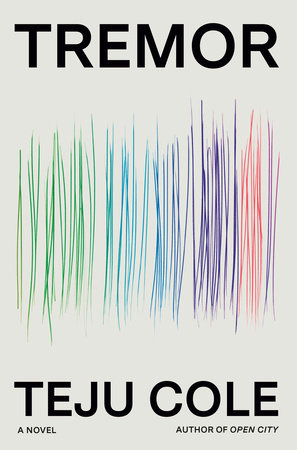This is the 50th book I have finished this year. And, once again, just like with so many other books this year, and the year before, and the year before that, I found myself asking one question in particular: is this really a novel?
I asked myself this question so many times during the course of reading this book that I had to go and check the cover, to make sure that it indeed said “A Novel” somewhere. And it did.
Knausgaard likes to think he reinvented the novel, and he is probably right to a point, but I feel like in the last few years the definition of what constitutes a novel has continued to evolve into something new, something better. And it is amazing to see that this 1,000 year old genre is still capable of being reinvented again and again. Every generation it seems has to come to grips with a new definition, and that’s what it is happening now.
Tremor, like Pond, like Checkout 19, is a book with a razor thin plot that exists solely for the writer to expound on the topics of their choosing. The ones who do it well — like Teju Cole — allow themes to emerge kind of on their own, until the end is reached and the reader understands that while they didn’t actually read a story, such as it was, they were told a tale nonetheless, and that they have taken away an understanding of character, time, place. Sometimes that understanding takes until the very last page to see. Unveiling itself almost as if it is a crime novel.
This book lifts the veil here and there, but keeps you in the dark, and then it shakes you awake in the last five pages and you close it after finishing the final page and feel knocked sideways. It is a new experience for the reader, a reinvented experience, and in that sense despite the dark themes involved it is a pleasant experience. It isn’t rising action>climax>falling action. It’s something else entirely. And it’s something I have come to enjoy.
When it’s done well.
Teju Cole can do it well. Yes, the plot is paper thin, and yes the first and final thirds feel like he wrote said paper thin plot in order to talk about the subjects near and dear to him (art and music, mostly), but the one thing he does differently than, say, Anuk Arudpragasm did in A Passage North, is that he doesn’t center the story around himself. Far, far from it. He openly says that the suffering he is writing about is not his suffering.
The middle third read to me like Svetlana Alexeivich’s oral histories: short vignettes told by residents of Lagos, Nigeria. One right after the other. At first you wonder where he’s going with this but then you realize it doesn’t matter and you are sad when the section is over. It is haunting and brilliant writing.
This book sticks to your ribs. It requires patience and the reader must not read it as if it is a regular novel. It is a novel. Just not one we are used to. And the writer rewards us for sticking around, for allowing ourselves to be open to what a novel can actually be. Just a collection of ideas, loosely woven around a theme, and written with courage and conviction.
On page 30 I wanted desperately to dislike this book. By the final page I never wanted it to end.
*
A character in the book muses on the question we hear from time to time: when were you at your most happiest? The character likes to think that the answer should be: I don’t know yet. But instead we usually answer with a time far in the past, when we probably didn’t feel happy at all. I thought about that just now, as I was musing on what my favorite book of 2023 will be. I’m glad I didn’t answer that question in July without knowing that this book would come along in December. There’s a life lesson in there somewhere.
*
This is probably the last book I will finish this year. About 45 seconds after finishing this newsletter and hitting send I will finally crack The Wolves of Eternity by Karl Ove Knausgaard. It’s nearly a thousand pages so in the lull between reviews I plan on sending out a “best of 2023” newsletter at some point next week.
Until then: thanks for reading.


